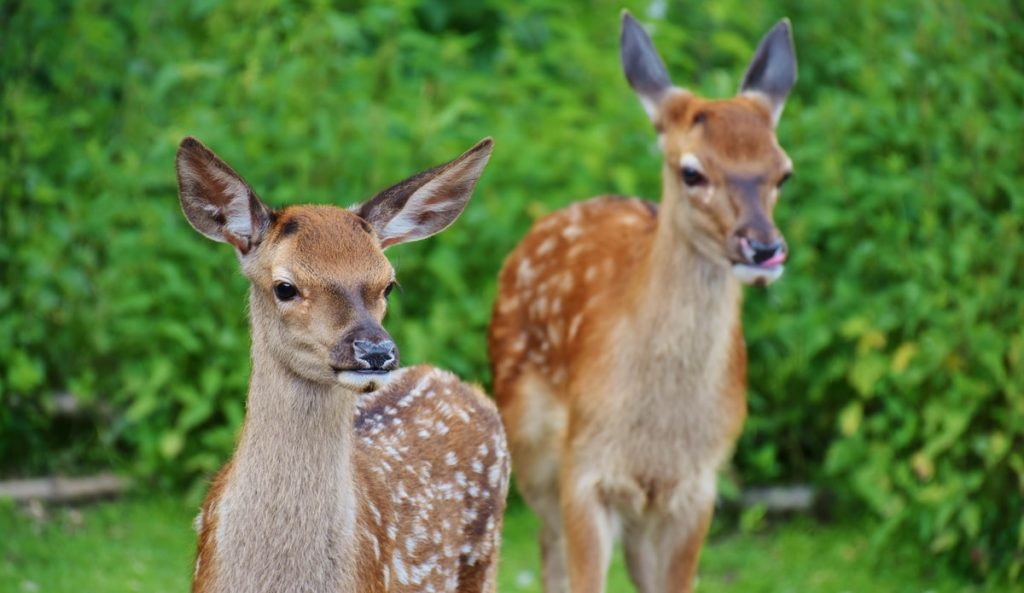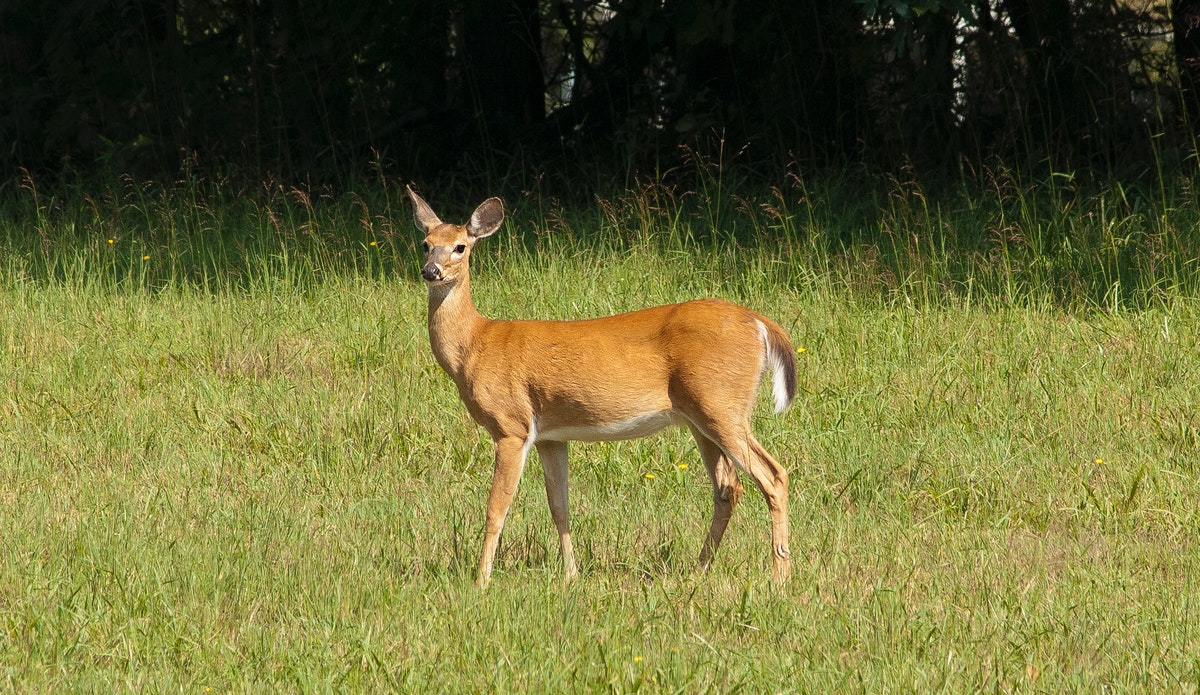Feeding deer can be a great way to get up close with the animals. However, there are some rules you should know before you start throwing out feed for the deer.
Deer are intelligent and resourceful animals. It’s also important to remember that deer are wild animals and belong in the woods, not on your property! Therefore, you must be cautious to avoid any dangerous situations.
Here are what you should know about feeding a deer:
Table of Contents
1. Do Feed Deer in a Controlled Environment
You can create a feeding area for your deer on your property if there aren’t any natural food sources nearby that would attract deer from off of your property. Deers will learn quickly where you are putting out food and your deer feeding times, coming back night after night looking for more.
A feeding station should be located away from your home so that any animals attracted by the feed don’t get too close and become comfortable with being around humans. You should also ensure that there are no other animals around while you’re feeding deer at this location so that they don’t fight over food resources or with other wild animals like bears or wolves.
2. Don’t Feed Deer Near Homes and Buildings
Feeding deer near homes or buildings is dangerous for people and animals. The deer will become habituated to humans, leading to harmful interactions between the two species. If a deer is accustomed to humans, it may approach them when they’re in an unsafe situation. For example, if a human appears injured or sickly, the deer may try to help them by licking their face or biting them on their arms or legs. This can cause serious injury for both parties involved.
3. Don’t Feed Deer Corn Or Grains
This is one of the most common mistakes made by people who want to help their local wildlife population. Deer will indeed eat corn, but they are not designed to digest it properly. Corn causes internal damage and can even kill them if they consume too much of it.
4. Do Feed Only At Dawn Or Dusk
Feeding deer during daylight hours will attract predators like foxes, coyotes, and hawks, which could harm you and your pets and the deer themselves. You should also avoid feeding during cold weather so you don’t attract skunks or other animals that will take advantage of the easy meal without having to work for their food source in freezing temperatures.
5. Always Wash All Bones Thoroughly To Remove Bacteria And Parasites
Boil bones for 10 minutes before feeding them to deer. This ensures that the bones are sterile and will not cause health problems for people or animals when deer eat them. Bones from the barbecue grill should also be boiled because they may contain bacteria from meat cooked at high temperatures. Suppose you have leftover meat on your plate after dinner. In that case, it should be thrown away instead of fed to deer because it could contain bacteria such as E. coli or salmonella that could make you sick if eaten raw or undercooked by deer and other animals like raccoons or squirrels that might come along later looking for a free meal of dinner leftovers!

6. Don’t Leave Food Out All Year Long
An excessive amount of feed could attract rodents, carrying diseases like tularemia (rabbit fever) that can be transmitted via bites or scratches. It also may cause more competition among deer for food, leading to aggressive behavior and animal injuries.
7. Feeding Them In One Place Only
Don’t feed them in one place only because this will lead the deer back there whenever they come looking for food. Instead, spread out your feeding locations, so the deer don’t become dependent on any one spot on your property.
8. Feeding Them Daily
Feeding them daily will keep them coming back day after day, hoping for more food again, so don’t do this! Instead, you should only feed them once every few days at most, so they don’t get used to having free food all the time and start coming back for more.
9. Only Feed-approved Deer Food Like Acorns, Corn, Or Soybeans In Season
These foods will provide nutrients that deer need while keeping them healthy during winter when they cannot get enough natural food sources. For example, acorns are good because they have tannins that help keep scurvy away, a common problem for many wild animals during winter.
10. Don’t Overfeed Your Deer Friends!
It’s tempting when they come running up eagerly looking for their next meal, but overfeeding will make them fat and unhealthy. The best thing to do is leave out what you want them to eat, and if it’s not gone in a few days, take it away. You can also feed them fruit or vegetables such as apples and carrots, but don’t give them any processed food like bread or sugar—they won’t be able to digest it properly.
Conclusion
Suppose you value the deer in your neighborhood and want to maintain a healthy population that provides natural benefits like pollination and crop fertilization. In that case, it is essential to feed them correctly. However, it’s just as important to try not to feed deer in areas where they may bring about harm to humans, such as during hunting season. And remember, if you feed deer, it’s best to choose grains/nuts/vegetables over corn, which can upset their stomachs and cause illness.

Alex is fascinated with “understanding” people. It’s actually what drives everything he does. He believes in a thoughtful exploration of how you shape your thoughts, experience of the world.



